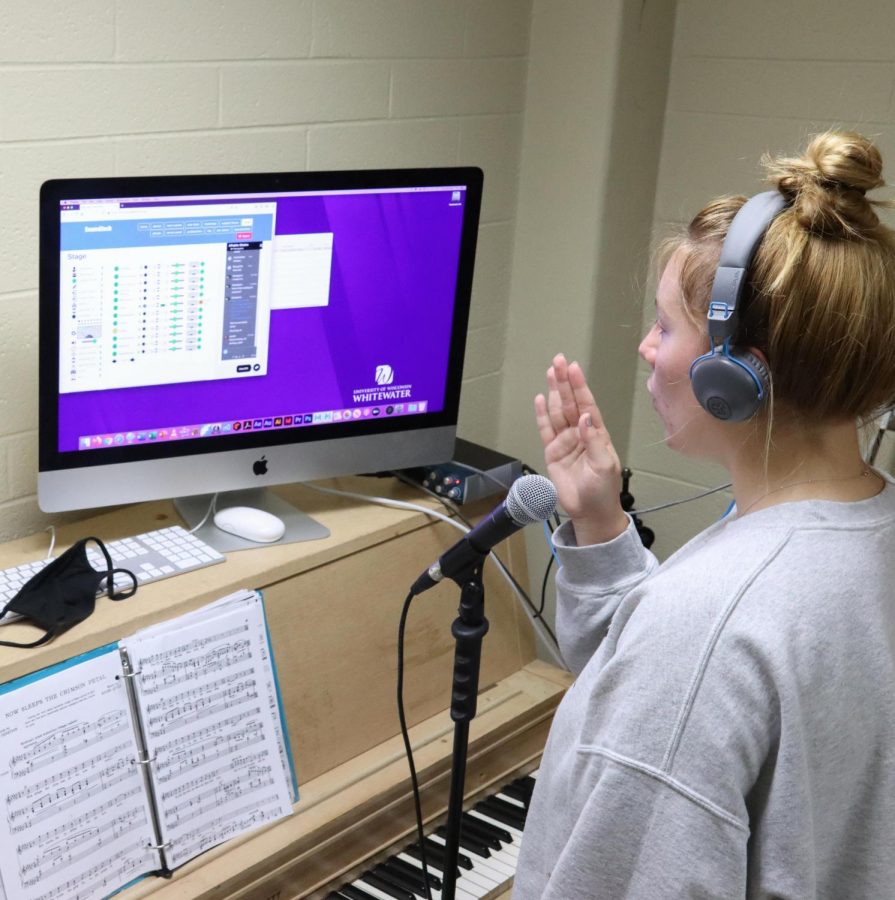Soundjack beats social distance
Music Department adopts new software application
Sophomore music education major Morgan Jensen practices over a Zoom call with assistant professor of voice Rachel Wood while using the Soundjack application.
October 25, 2020
Last winter, UW-Whitewater’s Music Department thought it would be impossible for groups to sing together distanced by the pandemic. They thought there would always be audio delays, and their music lessons would never correspond efficiently. However, when they discovered an article by Ian Howell about an app called Soundjack, it explained a program that would change the future of virtual music lesson. Soundjack allows singing without a connection delay, because of its lower latency.
“When we’re using this program we try to reduce the latency to as low as possible. We’re aiming for under 20 milliseconds, and when we are on the same campus network we can get the latency down to four or five milliseconds,” said assistant music director Rachel Wood. “Zoom’s latency is around 100 milliseconds.”
If more technology is added, it increases the latency and causes a delay in student’s vocal lessons. So it’s important to limit USB microphones, external mics, and unnecessary electronics.
Everyone being on a local network made their connection really powerful.The stronger their connection was, the lower their latency with the Soundjack app.
“You and I could sing and play together, and we would be able to see each other using our external devices. You would have a little bit of a delay, but the sound would be as if we are in the same room at the same time,” said Wood.
As they stood in the enclosed rooms, their voices bounced off the hard concrete walls. Their voices projected a clearer voice without any audio delays.
Soundjack was much clearer, because it didn’t distort the sound when singing. With Zoom, the music professors would hear something different compared to what the student heard.
“After several months of not being able to make music together with anyone, it’s almost emotional to make music together again,” said Wood. “People are just so starved for that right now, so things that are going on right now like the parking lot choir gives students the opportunity to sing together in real time.”
To learn more about latency and the Soundjack software program visit www.soundjack.eu.














John Shea • Dec 25, 2020 at 4:52 pm
Having trouble connecting Local SJC? somewhat confusing however have not read entire tutorial I can get on from time to time then asked to download latest which I have several times using Windows 10 google browser HELP!